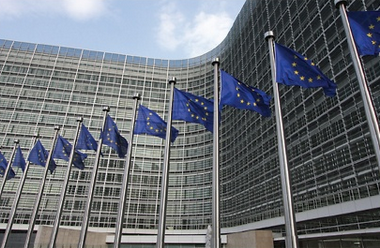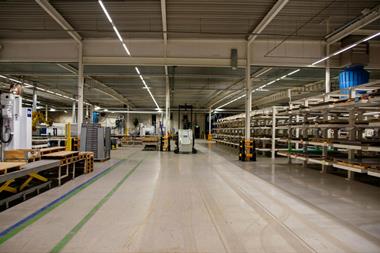How to invest in a politically unstable world was the main talking point in Berlin at the annual conference of the European Association for Investors in Non-listed Real Estate Vehicles (INREV).
Around 400 delegates heard how some strategies are safer than others as the US and Europe face political risk and upheaval.
“We’re clearly living in a period of challenge, inconsistency and uncertainty,” outgoing INREV chief executive Matthias Thomas said in his opening speech.
Several of the key issues that dominated public voting in the UK and US remain in sharp focus. “They’ve now become integral to the political discourse in Germany and France, as these countries head toward their respective national elections,” Thomas said.
For José Luis Pellicer, head of research at Rockspring Property Investment Managers, the prospect of the Front National’s Marine Le Pen becoming president of France next month has “unknown implications” for real estate.
The impact of the UK’s decision last year to leave the European Union prompted INREV to create a focus group involving 17 industry bodies and issue six guiding principles for future UK-EU relations.
The theme of investing globally in an uncertain world will be explored further at IPE Real Estate’s Global Conference & Awards in Munich on 16 May
There were some indications as to how the result of the UK referendum had affected investor behaviour.
Tetsuya Hasegawa, senior vice president of Sumitomo Mitsui Banking Corporation, said the Japanese bank had looked at the UK’s private-rented residential sector before the Brexit vote in June last year – but not pursued the strategy.
Sumitomo Mitsui is looking at “niche real estate sectors”, he said, such as mezzanine debt to “survive any downturn”.
François Trausch, chief executive of Allianz Real Estate, was resolute on London remaining “world city, regardless of Brexit”.
He said: “Overlook political uncertainty and keep going. Presidents change every four years – or in Italy every week.
“We live in a time when the global economic outlook in all three regions is extraordinarily good.”
As for the recent Dutch elections, Thomas said the country had somewhat redressed the balance in its election of Mark Rutte as prime minister.
“This may be a welcome relief, but it doesn’t alter the fact that there’s still dislocation among voters in Europe,” he said.
Interest rates could be a more significant agent of change for real estate markets. Trausch said a sudden, rapid increase in rates would be a “trigger event” for the sector.
The uncertainty caused by the surprise election of Donald Trump as president and Brexit has led to less competition in the US market, said Will McIntosh, global head of research at USAA Real Estate.
McIntosh said a strategy of focusing on growth US markets was preferable for USAA.
“There’s robust rental growth across US real estate sectors,” he said. “Fundamentals remain strong and demand for real estate is there due to almost full employment.
“There’s still a lot of opportunity in the US.”
All panellists agreed that real estate in the US, Asia and Europe is not in an asset price “bubble”.
Pellicer said that, in the UK, there has been “no bubble, but a correction” and property is fairly priced.
“For people who have been in this industry for a few decades, it is hard to see a 3% yield, so I understand [the concern],” he said.
Such yield compression has not dissuaded Asian investors, who for the first time were the world’s top source of capital last year, Tom Leahy, senior director at Real Capital Analytics, told delegates.
Judy McMahan, real assets portfolio manager at UPS Investments, said that, while the UK is still a “buy”, the investor would not be buying office or residential assets in London, having preferred logistics and debt for its “monthly income stream”.
Despite being flavour of the month among investors, logistics is only worth investing in where there is tight supply, Pellicer told delegates.
“Rents stay the same, but supply is increasing,” he said, adding that while supply is not under control everywhere, investors are often told that logistics is the “next big thing”.
He said: “Wherever it is easy to build – avoid.”
McMahan erred on the side of caution when asked about investing in new markets. “There is no point going to markets we don’t understand, like India or China,” she said.
Megan Walters, head of research for JLL in Asia-Pacific, said risk diversification across the region in all real estate sectors is mitigating uncertainty.
China, Walters noted, is enjoying international investment in tier-one locations.
Trausch said that once the 5% that Allianz Real Estate has made available for investment in Asia has been allocated, the German investor would look at Latin America – “when we are comfortable that what we have done in Asia seems to work,” he said.
Alongside the risks of investing in the current politically uncertain climate, the issue of how much longer the current commercial real estate cycle has left to run was raised.
McMahan said she is sure that while the “cycle will go a bit longer… we have less runway in front of us than behind us”.
The theme of investing globally in an uncertain world will be explored further at IPE Real Estate’s Global Conference & Awards in Munich on 16 May.









